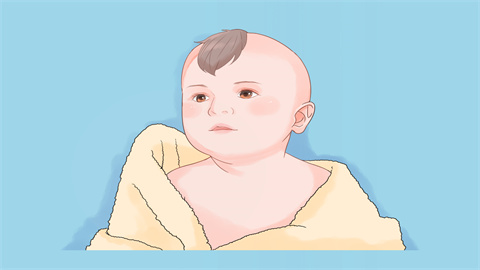What causes a baby's inner lips to turn white?
Generally, a baby's inner lips turning pale may be related to factors such as milk residue, delicate skin and mucous membranes, thrush, mouth ulcers, or anemia. A detailed analysis is as follows:

1. Milk Residue
After feeding, if the baby's mouth is not cleaned promptly, milk may remain on the lips, forming a white milk residue. After each feeding, use sterilized cotton swabs or gauze dipped in warm water to gently wipe the baby's lips and oral cavity to ensure cleanliness.
2. Delicate Skin and Mucous Membranes
A baby's lip skin and oral mucous membranes are very delicate. During breastfeeding, vigorous sucking may cause excessive friction between the inner lips and the nipple, resulting in paleness. No special treatment is required, but observe the baby's condition during feeding and ensure the correct feeding posture to avoid excessive friction.
3. Thrush
Thrush is caused by oral candida infection and may be associated with frequently licking unclean toys, sucking on inadequately cleaned bottles, or unclean nipples. It mainly manifests as white patches on the buccal mucosa, tongue surface, and inner lips. Accompanying symptoms may include irritability and crying. Treatment should be guided by a physician using medications such as nystatin tablets, fluconazole tablets, or sodium bicarbonate tablets.
4. Mouth Ulcers
Mouth ulcers may result from trauma, infection, and other causes. White ulcerated areas may appear on the inner lips, possibly accompanied by localized pain affecting feeding. Treatment may be administered under the guidance of a professional physician using medications such as oral ulcer powder, cetylpyridinium chloride lozenges, or vitamin B2 tablets.
5. Anemia
Iron-deficiency anemia is common in infants and may result from insufficient dietary intake of iron. The lips may appear pale, accompanied by symptoms such as fatigue, nausea, vomiting, and dizziness. Treatment should follow medical advice using medications such as ferrous sulfate syrup for children, iron dextran oral solution, or vitamin C tablets.
To prevent this condition, parents should maintain oral hygiene by promptly cleaning the baby's mouth and lips after each feeding to avoid milk residue. Additionally, regularly clean and disinfect the baby's bottles, nipples, and toys to prevent bacterial infections.






